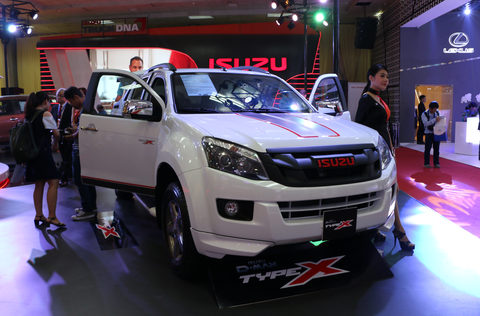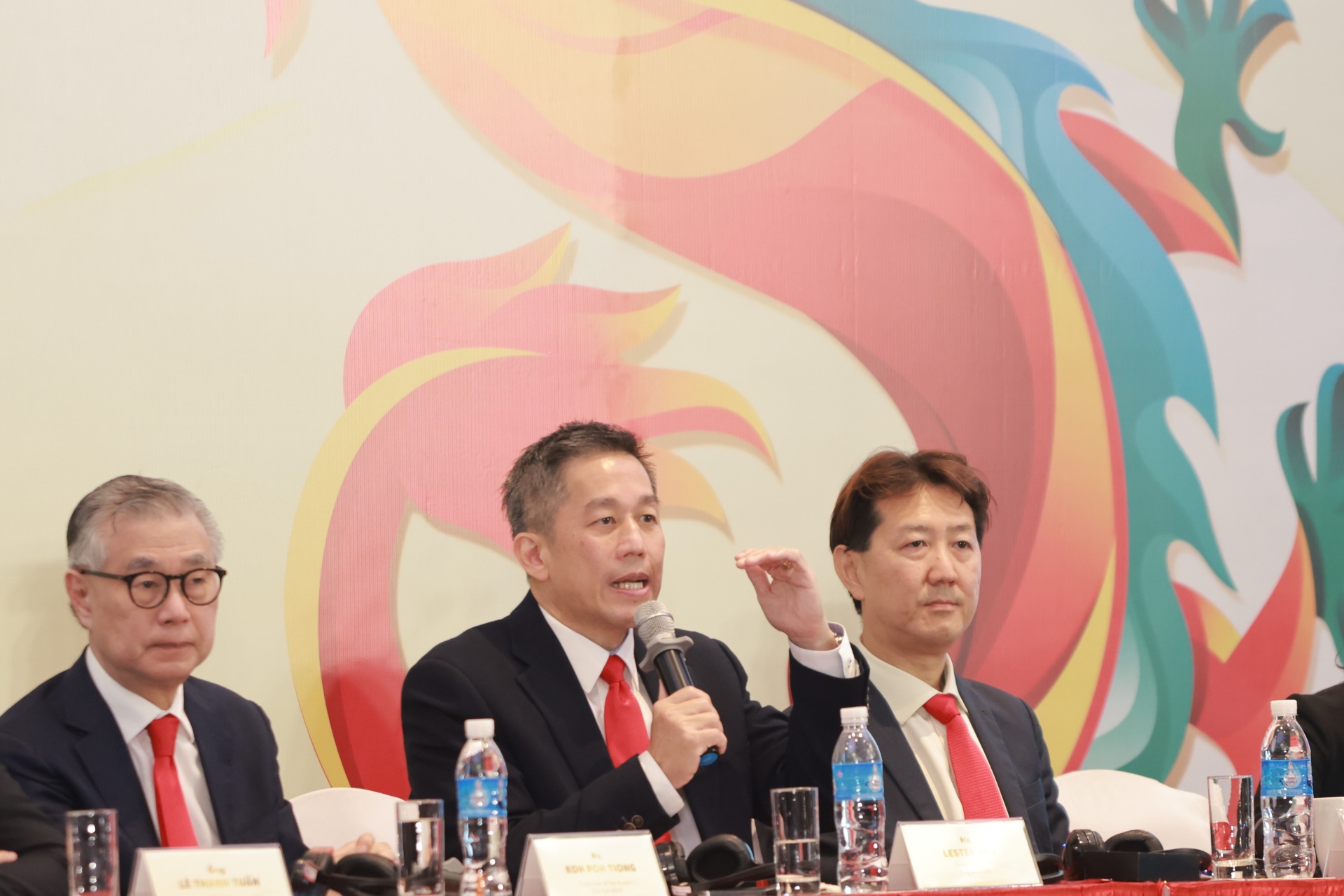Price of pick-up trucks predicted to soar next year
 |
| Pick-up trucks on display at an exhibition in Ha Noi. - VNS Photo Doan Tung |
The price difference between pick-ups and cars was seen as unreasonable since pick-ups were allowed to run on the road like cars as of November 1, 2016. Previously, the pick-ups, which were seen as trucks, were prohibited in the city from 6-9am and from 3-9pm. They were also banned on certain streets.
It was also one of the points discussed by Deputy Prime Minister Trinh Dinh Dung at a recent meeting on auto import with the relevant ministries and sectors.
At the meeting, Dung requested ministries and sectors to study and re-appreciate the special consumption tax and registration fee for pick-ups. The report and proposals will be sent to the Government and the National Assembly for consideration. The National Assembly meeting is scheduled to start on May 20.
Insiders said that when compared with sport utility vehicles (SUVs) and other types of vehicle with the same engine displacement and chassis priced at about VND1 billion (US$43,878), pick-ups have more advantages when priced at between VND600 million and over VND800 million.
Pham Van Dung, General Director of Ford Viet Nam, said it resulted from pick-ups meeting both the purposes of daily use in the inner city and suburbs, thanks to its capacity to transport people, as well as goods.
In addition, automakers have regularly added comfortable features and modern technologies, which are in no way inferior to those of a car with nine seats and less. The local market includes various choices of brand names and models such as Ford Ranger, Chevrolet Colorado, Toyota Hilux, Mitsubishi Triton, Mazda BT50, Isuzu D-Max and Nissan NP300 Navara.
Rushing to buy
The Tuyen, a resident of Dong Da District, Ha Noi, said following the recent instruction by the Government leader, the price of pick-ups would certainly increase. “Several friends and I are trying to arrange enough money to buy the vehicles in the shortest time, not only for travelling but also to do business,” said Tuyen.
Phu Cuong, a resident of Ba Vi on the outskirts of Ha Noi, said he was saving money to buy a Ford Ranger by the end of this year, which is priced at more than VND700 million.
But with the information on price hikes, Cuong decided to borrow money from his friends and relatives to buy the car as soon as possible. “If I buy later, I think I will have to pay an additional 100 million dong,” Cuong said.
According to the General Department of Vietnam Customs, the country imported 29,900 pick-up units in 2016, more than 10 times the 2010 number.
Since early this year until March 15, about 3,900 pick-ups were imported to Viet Nam, an increase of 0.8 per cent compared with the same period last year, almost all of them from Thailand.
Explaining the major import of pick-ups from Thailand, insiders say the import tax for pick-ups is five per cent, while that of other cars from ASEAN countries, including Thailand, is 30 per cent. Furthermore, the registration fee for pick-ups is only 2 per cent, compared to 10 and 12 per cent for other cars.
Many businesses have complained about the lower prices and taxes of pickup trucks. Nguyen Tuan, Director of Thien An Phuc Company, said the Government’ re-appreciation of special consumption tax and registration fee on pick-ups was necessary.
According to Tuan, pick-ups’ special consumption tax could be at 75 per cent for engine displacement of 1,500cc to 3,000cc, up from the current 40 to 55 per cent of the car value. Meanwhile, the registration fee could be raised from the current 2 per cent to between 10 per cent and 12 per cent — the same level as for cars with nine seats and less.
Tuan said this would raise the price of pick-ups by 30 to 40 per cent. “Most pick-up users are businesses or small business households; therefore it’s important to consider and revise the tax and fee levels appropriately. The special consumption tax may be between 30 per cent and 50 per cent of the tax on cars,” said Tuan.
What the stars mean:
★ Poor ★ ★ Promising ★★★ Good ★★★★ Very good ★★★★★ Exceptional
Latest News
More News
- Pending issues will be ironed out on regulations around EPR (April 05, 2024 | 11:37)
- Revised Land Law expected to drive remittances to real estate market: Experts (April 03, 2024 | 16:33)
- CPTPP milestone marks nation’s economic integration (April 03, 2024 | 09:38)
- Wide-ranging agreement opens up more diverse trade channels (April 03, 2024 | 09:21)
- Lessons in wealth management and suitable directions for Vietnam (April 01, 2024 | 09:14)
- Logistic predictions in 2024 (March 29, 2024 | 09:31)
- Concerted effort to capitalise on investment trends (March 27, 2024 | 15:00)
- Vietnam’s retail market takes on much-needed green journey (March 20, 2024 | 10:02)
- Vietnamese economy proceeding as predicted: experts (March 19, 2024 | 14:59)
- Manufacturing trends to watch to help respond dynamically to the market (March 19, 2024 | 10:28)















 Mobile Version
Mobile Version